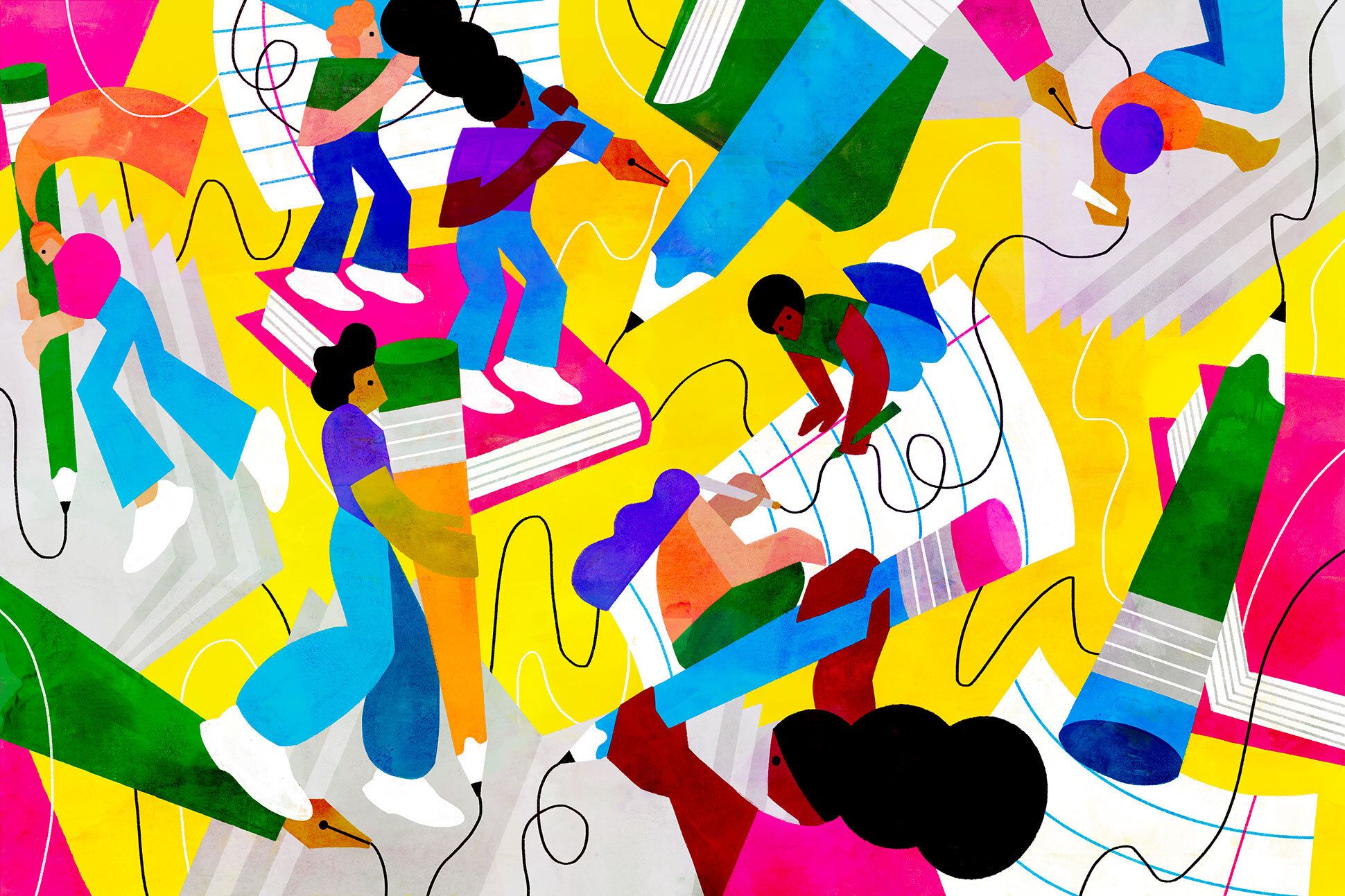Documentary Poetics (Grades 6-8)
Shedding light on injustice with found language.

Today’s prompt asks you to experiment with documentary poetics. Documentary poems use found language from interviews, legal documents, newspapers, or elsewhere. Usually, they are written to shed light on an injustice, especially one that many people may not know about. First, make a list of what injustices matter to you, that you think the world should know about. Now, make a list of found, text-based materials that might make good poems.
Then read a selection From “Banana [ ]” by Paul Hlava Ceballos, a poem that “traces the history of bananas in the Americas” using found text from “19th century history books, 20th century declassified CIA documents, agricultural guides, and commercials.” What kind of injustice might this poet be bringing to our attention? How can you tell?
Next, read Declaration by Tracy K. Smith, a poem that uses fragments of the US Declaration of Independence. Why might this poet have chosen this source of found text? What story does she uncover within this document?
Next, read a selection from the poet Muriel Rukeyser’s The Book of the Dead, which was written after the poet traveled to Gauley Bridge, West Virginia, to investigate a mining disaster there that led to the deaths of hundreds or even thousands of miners. Rukeyser interviewed those affected and sat in on court proceedings in lawsuits against the company that owned the mine. Why do you think the poet chose to use the words of this miner in her poem? Why is it important that poetry is used in the struggle against injustice?
You might say that what Muriel Rukseyer wrote are oral histories. According to Wikipedia: “Oral history is the collection and study of historical information ... using audiotapes, videotapes, or transcriptions of planned interviews. These interviews are conducted with people who participated in or observed past events and whose memories and perceptions of these are to be preserved as an aural record for future generations. Oral history strives to obtain information from different perspectives and most of these cannot be found in written sources.”
Oral history usually has specific standards of interviewing, such as asking open-ended questions and avoid leading questions, that respects the self-determination of the interview subject. The practice of an individual or community sharing their stories is as important to oral history as the archive that’s created as a result. Many oral history projects, like Muriel Rukeyser’s, have been the basis of works of art, theater, and literature.
Now, conduct your own oral history with a person or people in your home. You may choose to document the current moment, or a different time in their life. Record on your phone or copy what they say down word for word, and then edit it down significantly to the most striking, interesting or moving parts, to create your poem.


